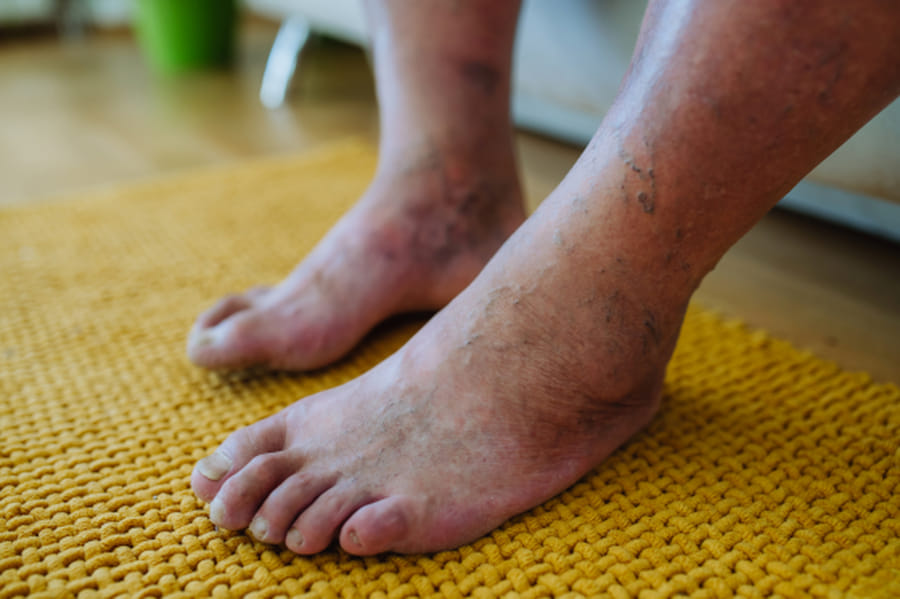How Neuropathy Can Affect Everyday Life

If you’ve ever felt a burning sensation in your feet, a tingling in your hands, or numbness that makes it hard to tell where the ground is—you might be experiencing signs of neuropathy.
Neuropathy is a condition that often goes unnoticed in its early stages, but it can gradually start affecting everyday life in significant ways. Whether it’s putting on your shoes in the morning or getting a restful night’s sleep, the impacts can be far-reaching.
In this blog, we’re exploring how neuropathy affects daily activities and routines—and why early support and the right approach can make all the difference.
What Is Neuropathy?
Neuropathy refers to damage or dysfunction of the nerves. It can affect sensory nerves (those that feel temperature, pain, and touch), motor nerves (those that control movement), or autonomic nerves (those that control automatic body functions like blood pressure and digestion).
One of the most common forms is peripheral neuropathy, which typically starts in the feet and hands. It’s especially common in individuals with diabetes, but it can also be caused by injury, infections, medications, or autoimmune conditions.
Symptoms can include:
- Numbness or tingling
- Burning or sharp sensations
- Muscle weakness
- Sensitivity to touch
- Poor coordination
While these symptoms might seem minor at first, over time they can start to interfere with the simple things in life.
Everyday Tasks That Neuropathy Can Disrupt
1. Walking and Balance When neuropathy affects the feet, it can feel like you’re walking on cushions or like your feet aren’t touching the ground properly. This numbness and lack of feedback from the feet can lead to balance issues and increase the risk of falls. A short walk to the mailbox can become something you dread.
2. Driving Controlling pedals or even sensing how much pressure to apply can become challenging. Neuropathy may affect your reaction time or your ability to feel the brake under your foot, creating safety concerns.
3. Sleep Quality For many people, neuropathy symptoms like burning or tingling worsen at night. This can make falling and staying asleep more difficult, leaving you fatigued and irritable during the day.
4. Dressing and Grooming If neuropathy affects your hands, buttoning a shirt, tying shoelaces, or even brushing your hair can feel clumsy or painful. The fine motor skills required for these activities can be compromised.
5. Exercise and Movement Staying active is an important part of managing many chronic conditions, but neuropathy can make exercise more difficult. The fear of falling or the discomfort during movement can discourage physical activity.
6. Social Activities When movement is uncomfortable or balance is uncertain, it’s common to pull back from social events, group outings, or even family gatherings. Over time, this can impact mental health and contribute to feelings of isolation.
The Emotional and Mental Health Toll
Living with neuropathy isn’t just a physical experience—it’s an emotional one too. Not being able to do what you used to can take a toll on your confidence. The unpredictability of symptoms can lead to anxiety. Add to that the frustration of trying to explain your experience to others who may not understand, and it can feel incredibly isolating.
That’s why finding the right support matters.
You Don’t Have to Navigate Neuropathy Alone
At Power Physical Therapy & Sports Medicine, we’ve been running workshops to help individuals better understand neuropathy and explore proactive, natural approaches to support nerve health.
If you or someone you care about has been noticing changes in balance, sensation, or comfort, it’s worth taking a closer look. We offer a Free Discovery Visit where you can sit down with our team one-on-one to discuss your experience and see what next steps might be right for you.
You can also Talk to a PT on the Phone if you’d like to ask a few questions before visiting in person.
Final Thoughts
Neuropathy may start small, but it can creep into every part of your life if left unaddressed. The good news is that the earlier you take action, the more you can do to stay active, independent, and in control of your day-to-day routine.
If everyday activities are starting to feel different—whether it’s walking, driving, or simply enjoying time with loved ones—know that support is available.
Ready to take the first step? Reach out today or call us at (714) 557-2100.
Let’s work together to keep you moving forward.
